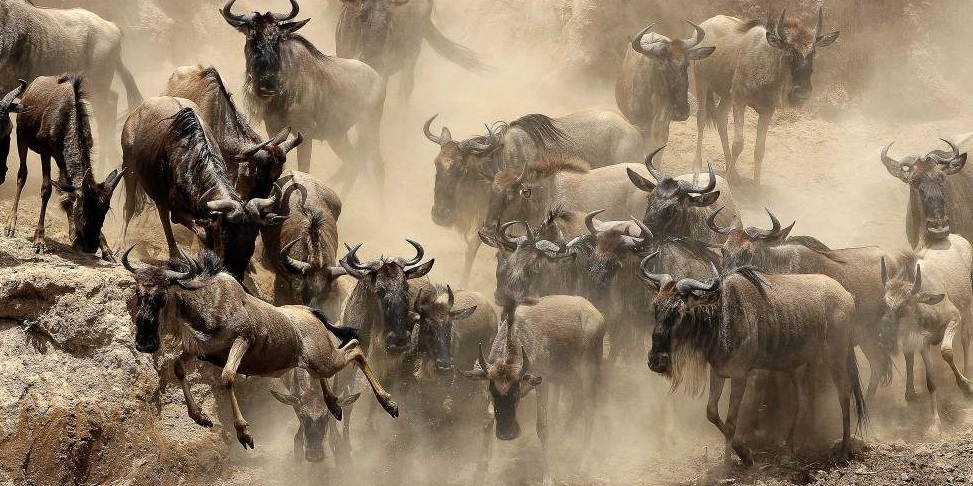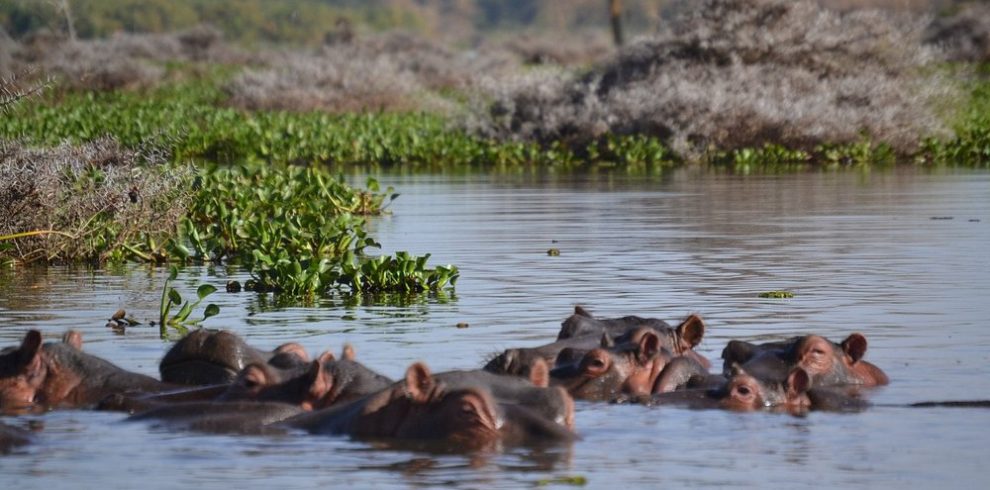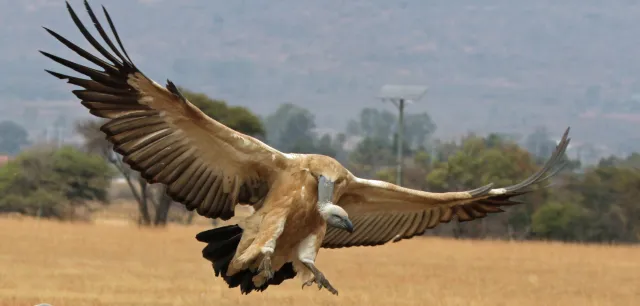
Vultures are some of the most misunderstood yet fascinating creatures in the animal kingdom. These are impressive birds that have always been synonymous with death and decay since they are carrion birds. However, vultures play an incredibly important ecological role, contributing significantly to maintaining the balance of ecosystems. In this article, we will explore 5 fascinating facts about the vultures, shedding light on their unique characteristics, behavior, and importance in the natural world.
1. Vultures are Nature’s Clean-up Crew
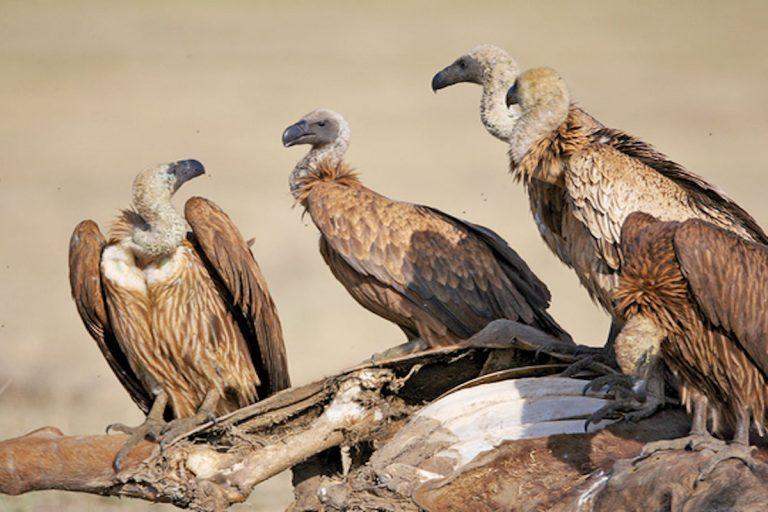
One of the most well-known facts about the vultures is their role as nature’s clean-up crew. Vultures are scavengers, which means they feed primarily on the carcasses of dead animals. In doing this they assist in ensuring that carcasses are eliminated rapidly, thereby decreasing the exposure of diseases and other pathogens that may occur to decaying animal specimens. Without vultures, dead animals would remain in the environment longer, potentially attracting other scavengers like flies, ants, and rodents, which could spread disease.
Vultures are highly adapted for this scavenging lifestyle. They have very, very sharp eyesight and they easily see carcasses even when they are high up in the sky and their beaks are strong and powerful and were well adapted to tear flesh. Vultures can soar up to 6,000 feet (1,800 meters) above the ground, scanning the landscape for the faintest sign of carrion. They possess the power to perceive ultraviolet light and sense odors across long distances, which are unrivaled in a bird scenario and they are thus efficient and effective in finding food.
Because vultures feed on carcasses, they are vital for controlling the spread of diseases such as anthrax, rabies, and cholera, which can otherwise be spread by decaying carcasses. In fact, a study conducted by the Indian Veterinary Research Institute found that the absence of vultures in certain regions led to an increase in the population of wild dogs and other scavengers, which in turn caused a spike in diseases like rabies and canine distemper. This further underscores the vital role vultures play in keeping ecosystems healthy.
An example is the bearded vulture, which has an extremely different way of feeding as opposed to other meat-eating animals because it also feeds on bones. To get at the rich nutritious marrow inside them, they can drop bones to smash them open at great heights, and in this way contribute to the breaking up of large animal carcasses and the recycling of their nutrients back to the ecosystem.
2. Vultures Have Remarkable Adaptations for Scavenging
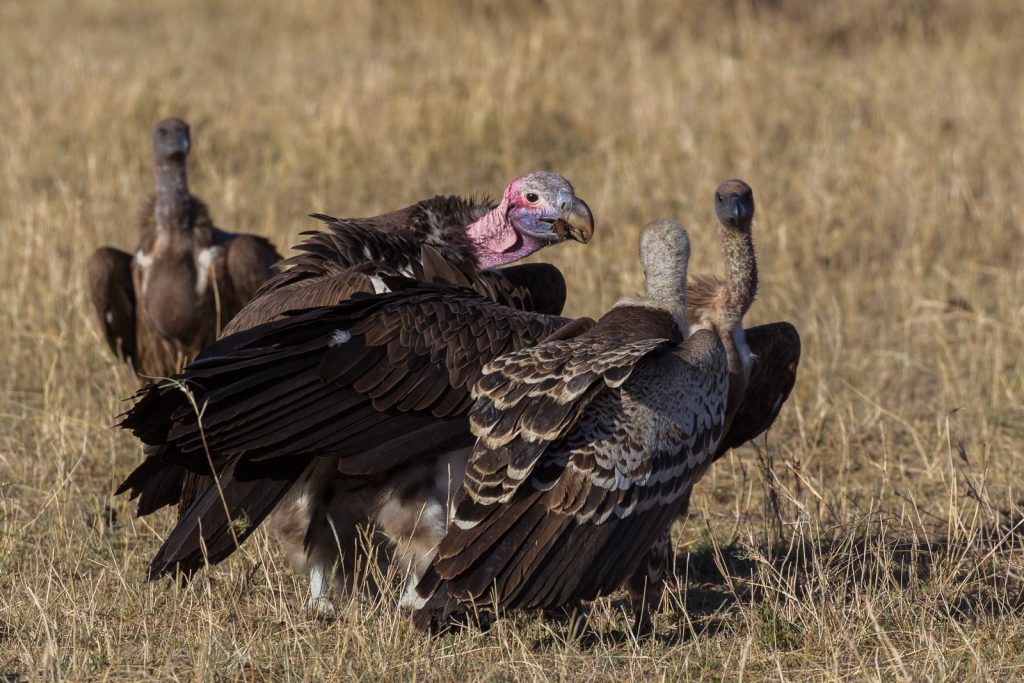
The physical features of vultures are finely tuned for their scavenging lifestyle. A significant fact about the vultures is that they have several adaptations that make them highly efficient at feeding on carrion, especially carcasses that might be left behind by predators or the natural course of life and death in the wild.
Among the most obvious adaptations includes the wide wingspan. Vultures have some of the largest wingspans of any bird, with species like the griffon vulture having a wingspan of up to 8.2 feet (2.5 meters). This expansive span enables them to fly long distances in search of food. This flight capability is very critical because they tend to cover vast areas of land during the search of dead animals.
Vultures also have superb eyesight. Their visual acuity is incredible and they are able to detect carcasses at a very long distance away. Their eyes are so sharp that they can pinpoint at a distance of several miles a dead animal when they are very high in the air. This adaptation makes them easily find food in large areas. Additionally, vultures have specialized naked heads and necks, which are essential for keeping their feathers clean while feeding. Without feathers, vultures can easily reach into carcasses and consume meat without the risk of contamination from the rotting remains.
Another fascinating adaptation of vultures is their highly acidic stomachs, which allows them to digest the harmful bacteria and pathogens found in the carcasses they consume. This is important because carrion usually harbors harmful pathogens that may make other animals unwell. Vultures, however, are equipped with stomach acids that can neutralize these pathogens, making them immune to many diseases that could harm other animals. This makes vultures an integral part of nature’s waste disposal system.
3. Vultures Are Essential for Ecosystem Health
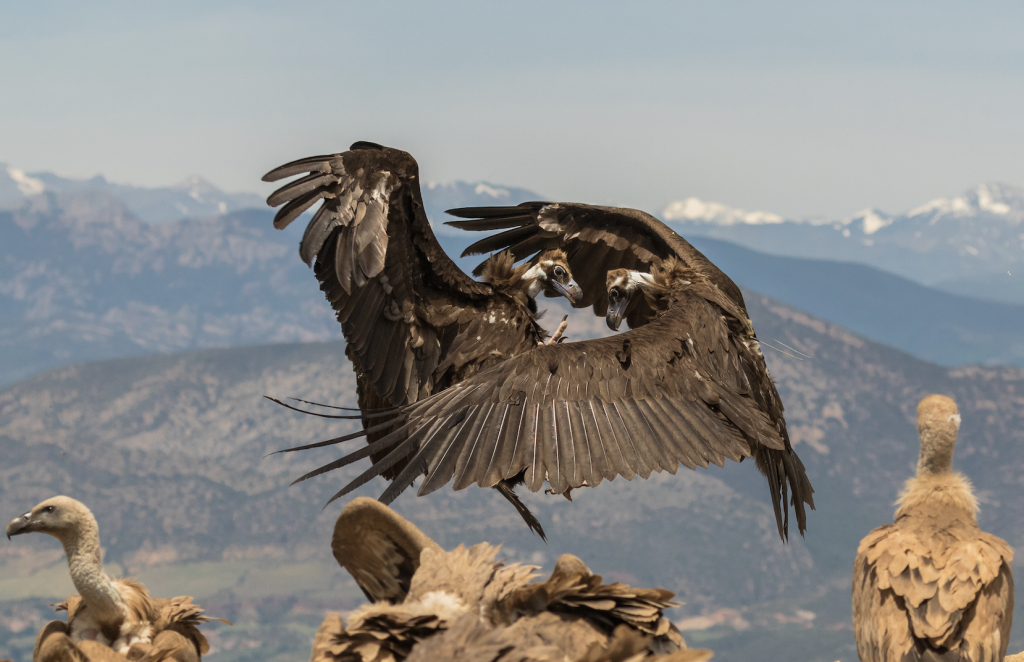
The importance of vultures goes far beyond their scavenging behavior. Facts about the vultures reveal that these birds have a significant impact on the health of ecosystems. By consuming dead animal carcasses, vultures help to maintain a balanced environment by preventing the spread of diseases and preventing the buildup of rotting organic matter.
Vultures play a key role in nutrient cycling within their ecosystems. When they feed on carcasses, vultures help break down animal matter and recycle nutrients back into the soil. The process leaves behind nutrients in the soil such as nitrogen and phosphorus, which are crucial to plant growth. Conversely, the good plants feed, and house numerous other species, including herbivores, insects, and birds. This makes vultures not just scavengers but also essential participants in the intricate web of life.
Furthermore, vultures help regulate populations of other scavengers. Without vultures, other animals that feed on carcasses, such as wild dogs or smaller scavengers, would increase in numbers. These may cause overpopulation of a species and subsequently unbalance the food chain. Vultures maintain this balance by ensuring that no one scavenger becomes too dominant in the ecosystem. This cycle plays an important role in sustaining biodiversity that promotes productive ecosystems.
Vultures also act as indicators of environmental health. As scavengers that feed on animal carcasses, vultures are sensitive to changes in the environment, such as the presence of toxic chemicals or diseases. The health of vultures may indicate underlying ecological issues, as when the population starts to die off, it may be due to habitat erosion or contamination with hazardous materials. This makes vultures a valuable tool for environmental monitoring, as their health and numbers can provide important insights into the state of the ecosystem.
4. Vultures Face Severe Conservation Threats

Unfortunately, vultures around the world are facing significant conservation threats, making them some of the most endangered birds. Facts about the vultures reveal that many vulture species are in decline due to a variety of factors, including habitat loss, poisoning, and illegal hunting.
One of the biggest threats to vultures is poisoning, often caused by the use of poison to kill predators or protect livestock. Farmers and even herders in certain areas have used poison to kill lions, jackals or any other predator that threatens their livestock. Unfortunately, vultures are highly susceptible to poisoning because they scavenge carcasses, and when they feed on poisoned animals, they too become victims. This has led to catastrophic losses of the vulture populations in some areas like in parts of India and Africa.
Another significant threat is habitat loss, particularly the destruction of open grasslands and savannas where vultures typically nest and forage. As human populations grow, more land is being converted for agriculture and urban development, reducing the available habitat for vultures. This makes it increasingly difficult for vultures to find suitable areas to feed and breed.
In addition to habitat loss, vultures face threats from illegal hunting and trade. The body parts of vultures are used in medicine or as magical objects by some cultures, and as a result some birds are illegally poached. Furthermore, vultures are sometimes killed for sport or due to superstitions about their association with death.
As a result of these threats, many species of vultures are now listed as endangered or critically endangered by organizations such as the International Union for Conservation of Nature (IUCN). Vulture extinctions are disastrous to the ecosystem because their roles are essential to keep the ecosystem healthy and balanced.
5. Vultures Have Unique and Fascinating Behavior
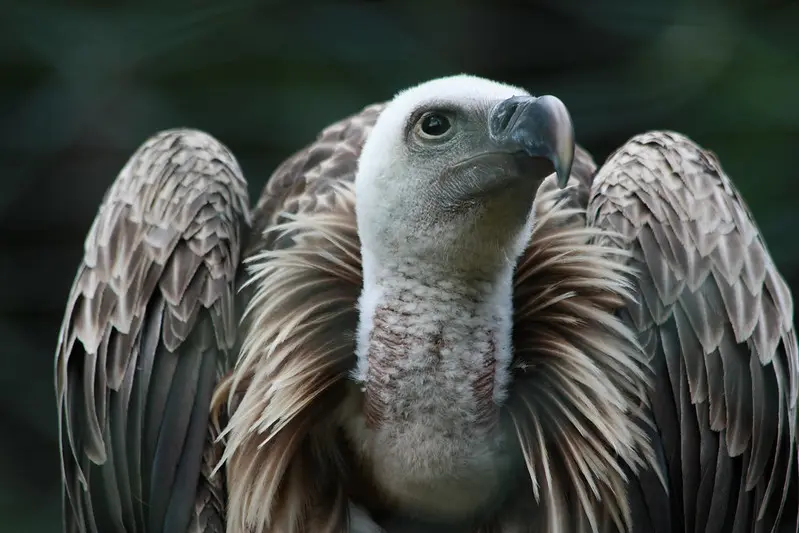
While vultures are often seen as grim and morbid due to their association with death, their behavior is far more complex and fascinating. One of the most interesting facts about the vultures is their social behavior. Vultures are highly social birds, often seen in large groups or colonies. When they find a carcass, multiple vultures will often gather together to feed. They are known to engage in a hierarchical feeding system, where larger, more dominant vultures get the best access to food, while smaller or weaker individuals wait their turn.
Another interesting behavior of vultures is their role in communal roosting. In some areas, vultures gather in large numbers at night to roost together, often in the same trees or cliffs. These communal roosts can be made up of hundreds or even thousands of vultures. Roosting together offers protection against predators and allows vultures to socialize, particularly during the non-breeding season.
Vultures are also known for their mating rituals, which involve elaborate courtship displays and bonding between potential mates. During the breeding season, male vultures perform a series of aerial displays, where they swoop and dive in the air to impress females. These courting behaviors usually comprise elaborate aerial acrobatics, which prove the fitness and agility of the male. In addition to their social behaviors, vultures also have a highly developed sense of smell, particularly in species like the New World vultures. These vultures use their keen sense of smell to locate carcasses, unlike the Old World vultures, which primarily rely on their exceptional eyesight. The ability to smell carcasses from long distances is a fascinating adaptation that allows vultures to thrive in regions where food might be scarce.
Conclusion
Vultures are some of the most important, yet overlooked, animals in the natural world. They form the clean-up crew of the natural world helping to maintain a healthy landscape because they eat carrion and stop the diseases spreading. With their unique adaptations, complex social behaviors, and ecological importance, vultures are vital to maintaining a balanced and functioning environment.
Despite their importance, vultures face numerous conservation challenges, and many species are now endangered. It is essential that we understand and appreciate facts about the vultures and the crucial role they play in our world. By protecting vultures and their habitats, we can ensure that these incredible birds continue to thrive and fulfill their essential ecological functions for generations to come.

